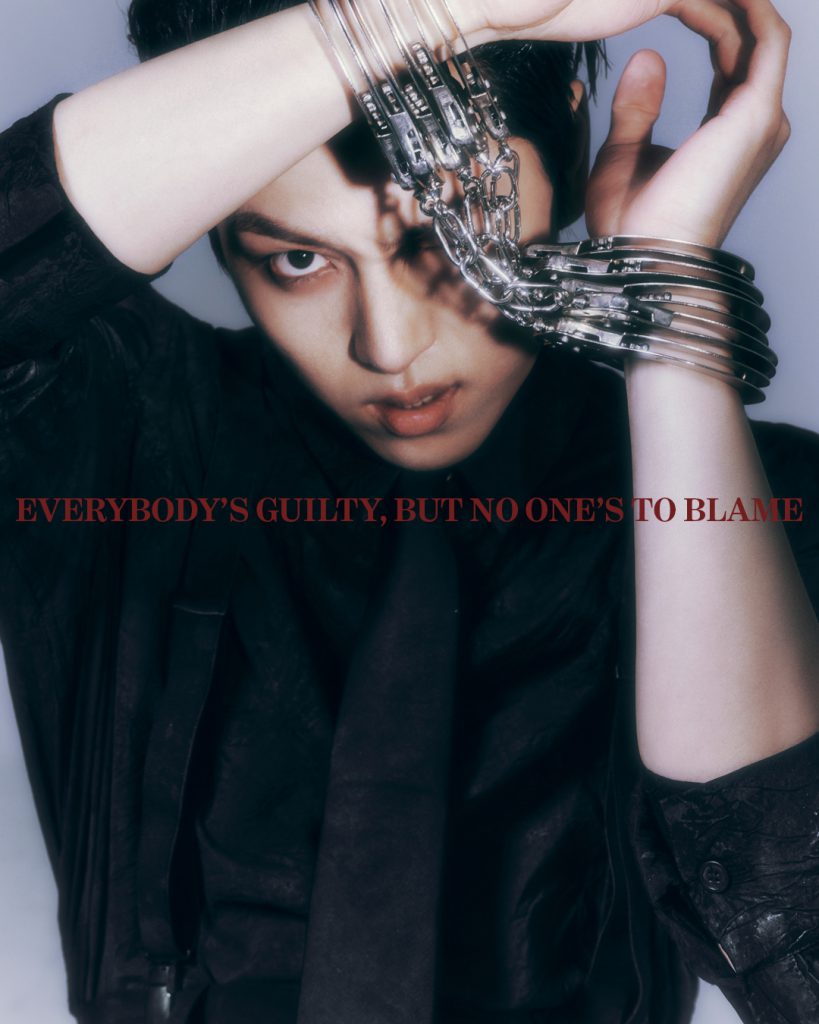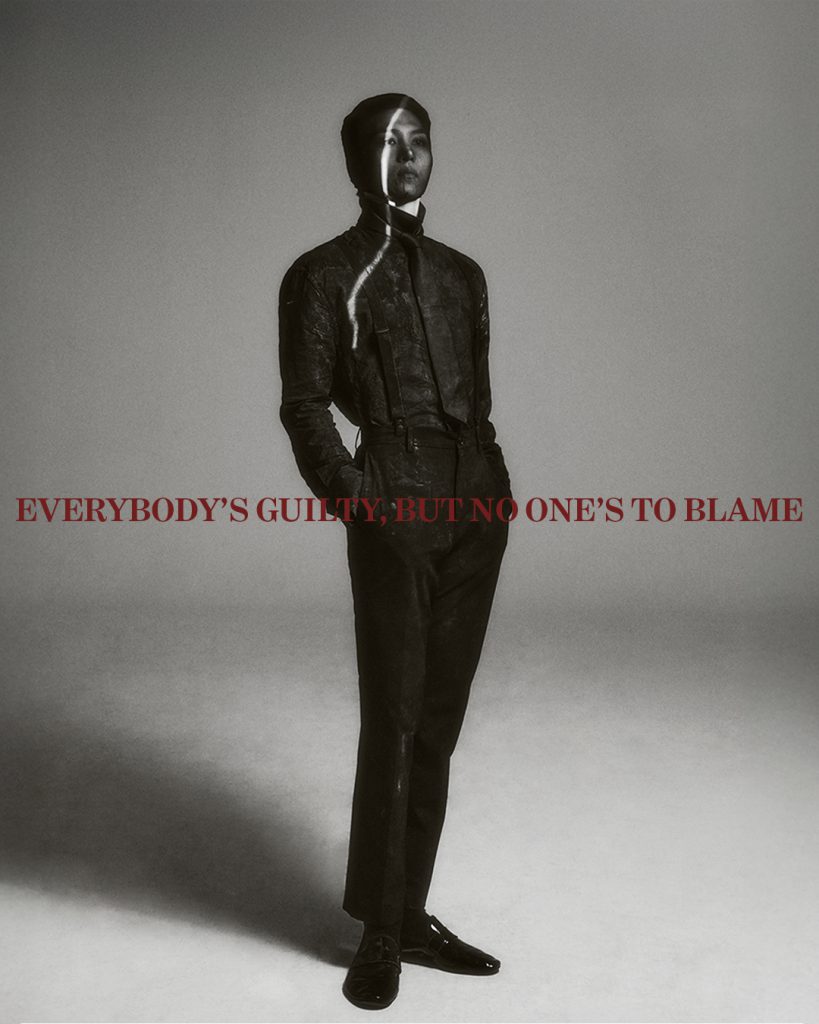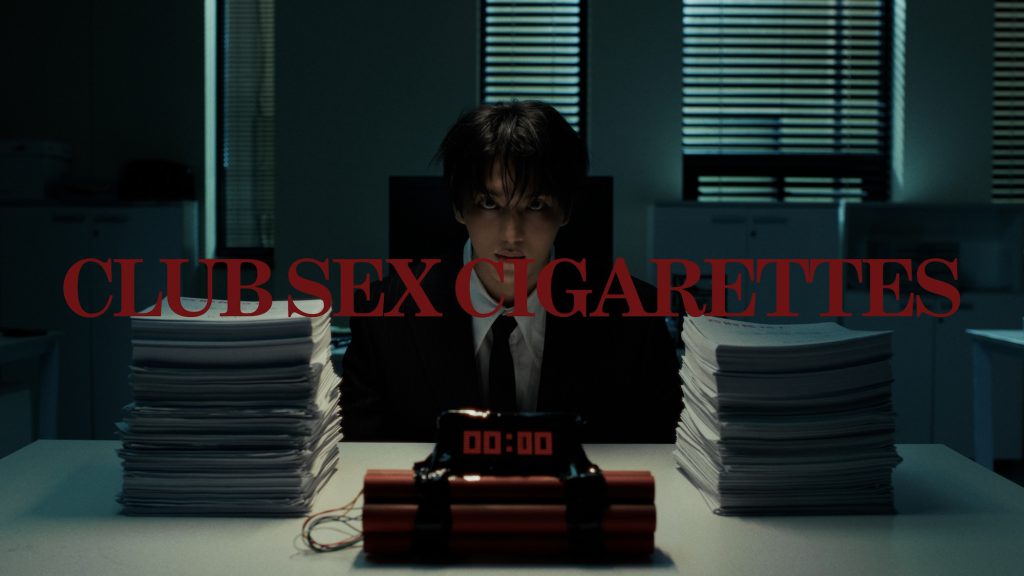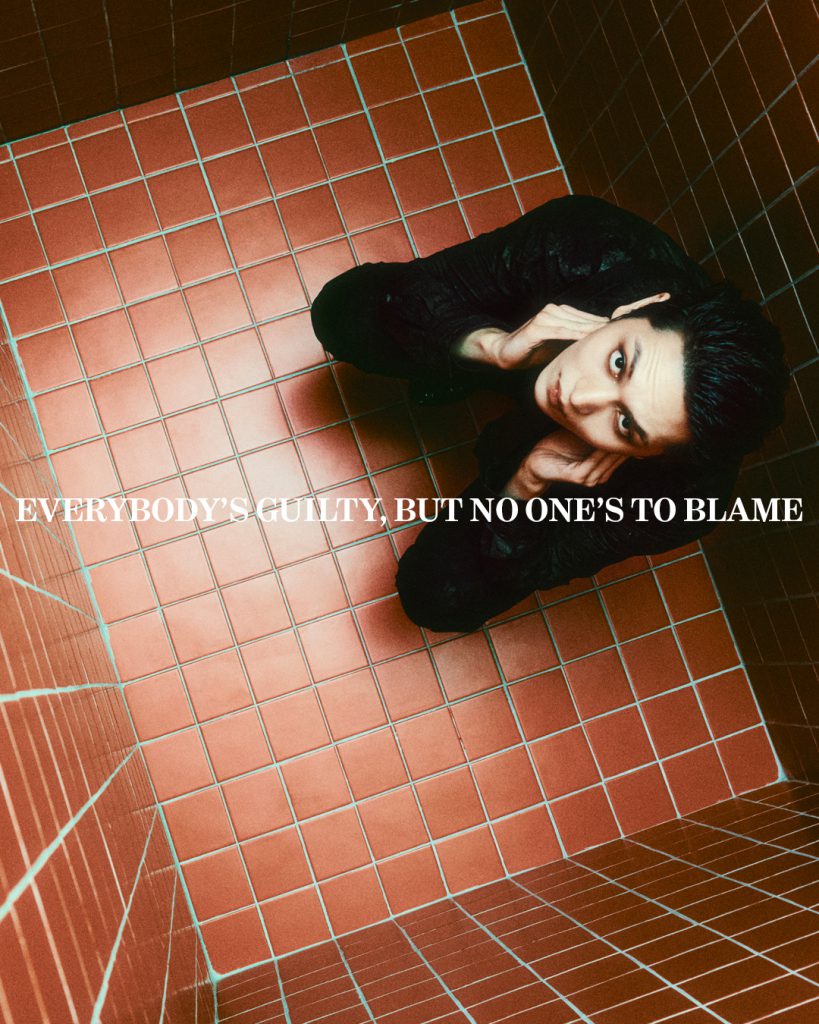When KINO established his one-man label NAKED in 2023, he stated that his goal was to “get close to music audiences by being truthful and being himself.” Founding a company was an ambitious new step for someone who had been fitting squarely into the traditional K-Pop mold for over a decade. The now 27-year-old artist began training at the age of 12, eventually debuting in Cube Entertainment’s PENTAGON at 18. He spent seven years with the group under Cube, achieving solid success, before his contract ended in 2023. Abruptly, KINO transitioned from a full-time idol with staff to a twenty-something office worker who handled meetings and taxes in addition to his art.
In NAKED’s first two years, KINO released an EP, embarked on two international tours across Asia and the Americas, and made his United States festival debut – all independently and with minimal full-time support. On the surface, it seemed like KINO was doing great. How many other artists who started their careers in idol groups could say they were doing well solo, or felt totally free and fulfilled doing so? Underneath, however, KINO was struggling. In a briefing shared with media, KINO noted that even without the pressure of a large company, he still felt as if he needed to fit the public ideal of flawlessness.

The crossroads of twenty-something impostor syndrome and corporate ennui are where KINO finds himself on his latest EP, EVERYBODY’S GUILTY, BUT NO ONE’S TO BLAME, released on October 13. KINO has never shied away from capturing his honest feelings in his music, as evidenced by his 2024 EP, If this is love, I want a refund, which dealt with the ups and downs of young love. But this latest semi-autobiographical release sees KINO taking aim and firing at society’s expectations. He candidly addresses themes of depression, insecurity, frustration, desire, and loss, and explores rebellion and self-rediscovery against the backdrop of heavy club beats.
The musical direction was intentional, according to KINO. In the past, KINO has leaned on vocal-forward, general public-friendly R&B. In a departure from his typical sound, EVERYBODY’S GUILTY, BUT NO ONE’S TO BLAME is rooted in the escapist and anti-establishment elements of rave culture. The album kicks off with aggressive bass, synths, and record scratches on “MY TURNTABLE IS CONCRETE PT. 2,” which samples a song from Korean DJ bojvck. But on top of the party-ready beat, KINO directly confronts the judgment and doubts about his career before proudly telling the world, “I know what you want, but I don’t want that shit.”
When KINO first teased new music during his iHeartRadio’s 102.7 KIIS FM Wango Tango Village debut back in May, he wore a sheer black Maison Margiela mask on the red carpet. He later removed it in an act of liberation, “unveiling his true self.” The same mask later appeared in the concept photos for EVERYBODY’S GUILTY, BUT NO ONE’S TO BLAME.

KINO’s unmasking culminates in the standout title track “DIRTY BOY” and its accompanying music video, which sees him breaking out of the “good boy” mold he grew up with. The techno-house song features two powerful female talents that balance out the song’s exploration of basic instincts: singer JAMIE and World of Street Woman Fighter alum and dancer UWA. JAMIE seamlessly matches KINO’s energy across the shamelessly provocative lyrics, while UWA commands both the viewer and KINO’s attention with synergetic partner choreography. The choreography, in particular, hammers home the song’s questioning of rules – a bold move in an industry where male and female pairings in performances can lead to intense backlash. Both JAMIE and UWA’s contributions to the track serve as a reminder that one cannot truly find themselves without the help of others.

The album’s pre-release single “CLUB SEX CIGARETTES” similarly seeks to provoke listeners. KINO shared that he deliberately chose to focus on three things that are considered taboo, especially in Korea. The punky, guitar-forward song gives a big middle finger to the monotony of working and to the bosses who are the source of our stress. “CLUB SEX CIGARETTES” is cathartic and relatable, highlighting the duality of who we must be when showing up to work, and the extremes of who we become when we give in to our vices to escape. The music video depicts KINO reaching his breaking point within his mundane “eat-sleep-work-repeat” routine. He falls into a nihilistic crashout – eating junk, trashing the office, and dreaming about killing his boss.
Despite its message, the original music video for “CLUB SEX CIGARETTES” drew controversy for the inclusion of a scene in which KINO watches a pixelated screen, heavily implied to be an adult video. KINO apologized publicly for offending viewers, took down the video, and eventually reuploaded it with a video game replacing the pixelated screen. But while critics were pacified, the situation seems slightly ironic. One can’t help but see the parallel between the controversy and the thorns that led KINO to create EVERYBODY’S GUILTY, BUT NO ONE’S TO BLAME in the first place.

KINO’s commentary on hustle culture continues on “WURK,” which features his PENTAGON bandmate jungwooseok. The song is one of the EP’s creative highlights. “WURK” is experimental; it samples a Korean labor song and serves as KINO’s attempt to modernize a traditional Korean folk rhythm called “jajinmori.” The final product is haunting and entrancing, KINO’s distorted voice wondering where his life has gone amidst the daily grind. It also criticizes the way society values hard work and dedication at the expense of one’s health.
The contemplation of Sisyphean routines and the human effects of endless work are a key topic on the album. KINO gets vulnerable about the personal experiences that inspired EVERYBODY’S GUILTY, BUT NO ONE’S TO BLAME in his documentary NAKED AND PROUD. In one of the documentary’s most heart-wrenching confessions, KINO shares the story of a close friend who was struggling with her mental health. Sadly, his friend passed away this year at her own hands. He expressed his regret of not being able to be as supportive as he could have been due to his long hours and work schedule. KINO also candidly spoke about how other friends became estranged as he chose to focus on work and pursue his dream.
KINO works through temptation and these lost relationships on the introspective track, “DEVIL ON MY SHOULDER.” Against a thumping bass, he wonders how what seemed like good decisions ended up going sideways. The mindless rhythm of the song is juxtaposed with the lyrics’ desperation. “Got that devil on my shoulder / yeah he’s fucking with my angels / yeah he’s changing all my plans,” KINO sings. Here lies the ultimate question of the album: When we make decisions for survival and pleasure, who is really to blame for the consequences?

Despite the heartbreaking themes, the album isn’t without some humor. Nestled in between “DIRTY BOY” and “CLUB SEX CIGARETTES” is “MAPSI,” a self-deprecating jab at toxic masculinity. The song’s pop-R&B sound is more familiar to longtime KINO listeners. “MAPSI,” which is the Korean word for “stylish,” was inspired by a viral conversation KINO had with a fan. After asking what type of man she should date, he advised her not to date them at all “because all men are animals.” “MAPSI” was the brainchild of this encounter, and sees KINO trying not to scare off a woman he’s interested in by letting his instincts be tamed.
The EP ends with “ANNIE,” meant to resemble emptiness after a long workday. At first listen, “ANNIE” seems like a yearning breakup song as KINO sings lyrics like “Without you, I’m better off dead,” and “Guess I couldn’t be your hero.” The song is actually intended to embody loneliness and uncertainty, and the incomplete piano chords and choppy sound effects fuel those feelings. And while “ANNIE” is the conclusion, it is definitely not the resolution of KINO’s quarter-life existential crisis. But a question mark still ends a sentence just like a period. Through “ANNIE,” KINO asks one final question: Is chasing fame and success worth losing the people you love?
Although KINO leaves with perhaps more questions than answers, he appears to make peace with the brutality of life on EVERYBODY’S GUILTY, BUT NO ONE’S TO BLAME. The album is an act of courage and defiance (in NAKED AND PROUD, KINO admits he wasn’t sure if he would actually ever release the EP), and reminds all of us, twenty-something or not, that confronting one’s demons is the first step to moving forward.
